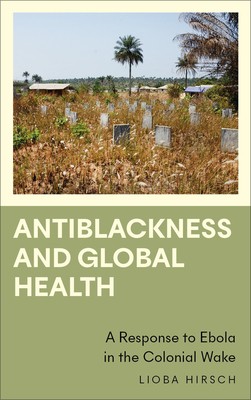
- We will send in 10–14 business days.
- Author: Lioba Hirsch
- Publisher: Pluto Press (UK)
- ISBN-10: 0745346286
- ISBN-13: 9780745346281
- Format: 14.2 x 22.4 x 1.8 cm, minkšti viršeliai
- Language: English
- SAVE -10% with code: EXTRA
Reviews
Description
Social anthropology researcher Lioba Hirsch offers a significant new account of the 2014-2016 West African Ebola crisis and a radical perspective on the racial politics of British health interventions.
Antiblackness and Global Health traces the legacies of colonialism across the landscape of global health in Sierra Leone, showing how this history underpinned the international response to Ebola. The narrative moves from the material and atmospheric traces of colonialism and enslavement in Freetown to the forms of knowledge presented in colonial archives and contemporary expert accounts of disease control and care practices. As the Covid-19 pandemic has revealed, health inequalities worldwide disproportionately affect people of African descent. Hirsch aims to equip critical scholars, medical and humanitarian practitioners, policymakers, and health activists with the tools and knowledge to challenge antiblackness in global health practice and politics. Antiblackness and Global Health argue that Black Studies can inform future research on medical interventions in Africa by unpacking postcolonial silences, centering Black perspectives, and highlighting the endurance of colonial infrastructures in the present.EXTRA 10 % discount with code: EXTRA
The promotion ends in 23d.22:53:22
The discount code is valid when purchasing from 10 €. Discounts do not stack.
- Author: Lioba Hirsch
- Publisher: Pluto Press (UK)
- ISBN-10: 0745346286
- ISBN-13: 9780745346281
- Format: 14.2 x 22.4 x 1.8 cm, minkšti viršeliai
- Language: English English
Social anthropology researcher Lioba Hirsch offers a significant new account of the 2014-2016 West African Ebola crisis and a radical perspective on the racial politics of British health interventions.
Antiblackness and Global Health traces the legacies of colonialism across the landscape of global health in Sierra Leone, showing how this history underpinned the international response to Ebola. The narrative moves from the material and atmospheric traces of colonialism and enslavement in Freetown to the forms of knowledge presented in colonial archives and contemporary expert accounts of disease control and care practices. As the Covid-19 pandemic has revealed, health inequalities worldwide disproportionately affect people of African descent. Hirsch aims to equip critical scholars, medical and humanitarian practitioners, policymakers, and health activists with the tools and knowledge to challenge antiblackness in global health practice and politics. Antiblackness and Global Health argue that Black Studies can inform future research on medical interventions in Africa by unpacking postcolonial silences, centering Black perspectives, and highlighting the endurance of colonial infrastructures in the present.

Reviews